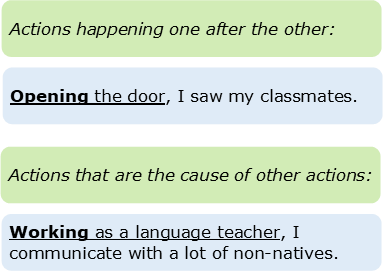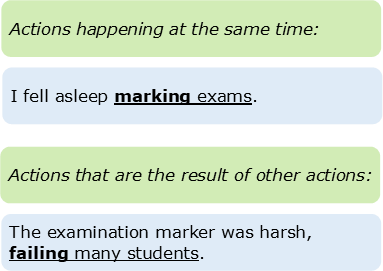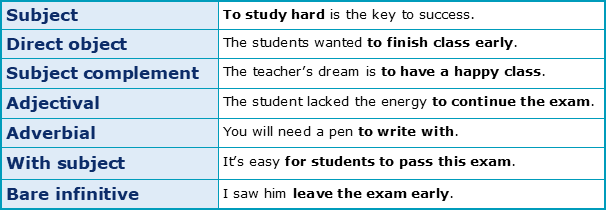Are participial and infinitival clauses important?

This is the third and final chapter about Dependent Clauses. To complete this reader, read each chapter carefully and then unlock and complete our materials to check your understanding.
– Review the difference between finite and non-finite clauses
– Compare participial and infinitival non-finite clauses
– Complete Chapter 1-3 Worksheets to check progress and understanding and improve English proficiency
Before you begin reading...
-
video and audio texts
-
knowledge checks and quizzes
-
skills practices, tasks and assignments
Chapter 3
Welcome to our third and final chapter on dependent clauses, focussing on non-finite participial and infinitival clauses. Following Chapters 1 and 2, we should now recognise that dependent clauses cannot stand alone as sentences and must be combined with other clauses, that they may contain any phrase functions (but at a minimum must have a subject and a verb), that they may be joined to independent clauses using subordinating conjunctions and commas, and that they are the building blocks of complex and compound-complex sentence structures.

Having studied finite adjective, adverbial and noun clauses in Chapter 3, we next investigate the form and function of Type 4/5 non-finite participial and infinitival clauses. As these are some of the trickiest types of clause, it’s important that students study these structures carefully to help guarantee accurate use. Don’t forget to complete our Chapter Worksheets on this topic as they will help to make sure that you’ve understood these concepts.
What makes a clause non-finite?
Unlike their finite counterparts, non-finite clauses do not commonly include subjects and comprise verbs which are unable to show tense distinctions. In other words, non-finite dependent clauses such as ‘studying for the exam’ or ‘to become a lawyer’ express events or states in the same way regardless of whether those events happened before, during or after other events. Broadly categorised into two types (participial and infinitival), non-finite clauses can be very helpful for those using English for academic purposes (EAP) as such clauses allow for the conveyance of information in a shorter and more concise way.
Type 4: Participial Clauses
i) There are at least five subtypes of participial clause, the first of which is the present participial clause. These clauses are without subjects and require the present participle (‘-ing’) form of the verb. They can express:


ii) The second subtype is the present participial clause that contains a subject, such as in the two examples below (the second of which is a reduced relative clause):
- With the students studying for their exam, the tutor could mark in peace.
- The teacher invigilating the exam was not paying attention.
iii) Using the present-participle form of ‘have’, it’s also possible to form perfect participial clauses. This third subtype is commonly used in two ways:


iv) Past participial clauses using ‘–ed’ or ‘–en’ past participles are also helpful, particularly for shortening passive-voice finite clauses:
“The students were disappointed by their grades and appealed for a re-mark.”
- Disappointed by their grades, the students appealed for a re-mark.
“This is the final assignment that was submitted by my students.”
- This is the final assignment submitted by my students.
v) Finally, gerund participial clauses using the present participle (‘-ing’) verb form take the place of the subjects or objects of a sentence. This function makes them a type of non-finite noun clause, much like those explored in Chapter 2:
- Studying for the exam is boring.
- I like studying for exams.
Type 5: Infinitival Clauses
The final type of dependent clause is the infinitival clause. In English, an infinitive is a verb that has the word ‘to’ placed directly before it, such as ‘to study’ or ‘to teach’ (although as you’ll notice in the table below, it is also possible to have bare infinitives without ‘to’). The verb that follows ‘to’ in such constructions is said to be non-finite because it cannot show distinctions of time through tense, much like participials. As the following table demonstrates, there are at least seven types of infinitival clause that you should focus on learning and using:


Well done on completing this short reader on dependent clauses. Now that you know what a dependent clause is, have studied the three types of finite dependent clause (adjective, adverbial and noun) and are also familiar with participial and infinitival non-finite clauses, now might be a good opportunity to unlock, download and complete our Chapter 1-3 Worksheets. These activity PDFs have been designed to check your knowledge of this grammar point and improve your overall English proficiency.
Downloadables
Once you’ve completed all three chapters in this short reader about Dependent Clauses, you might then wish to download our Chapter Worksheets to check your progress or print for your students. These professional PDF worksheets can be easily accessed for only a few Academic Marks.
Chapter 1 explores the topic: What are dependent clauses in English grammar? Our Chapter 1 Worksheet (containing guidance, activities and answer keys) can be accessed here at the click of a button.
Chapter 2 explores the topic: What are adjective, adverbial and noun clauses? Our Chapter 2 Worksheet (containing guidance, activities and answer keys) can be accessed here at the click of a button.
Chapter 3 explores the topic: Are participial and infinitival clauses important? Our Chapter 3 Worksheet (containing guidance, activities and answer keys) can be accessed here at the click of a button.
To save yourself 2 Marks, click on the button below to gain unlimited access to all of our Dependent Clauses Chapter Worksheets. This All-in-1 Pack includes every chapter, activity and answer key related to this topic in one handy and professional PDF.
Collect Academic Marks
-
100 Marks for joining
-
25 Marks for daily e-learning
-
100-200 for feedback/testimonials
-
100-500 for referring your colleages/friends